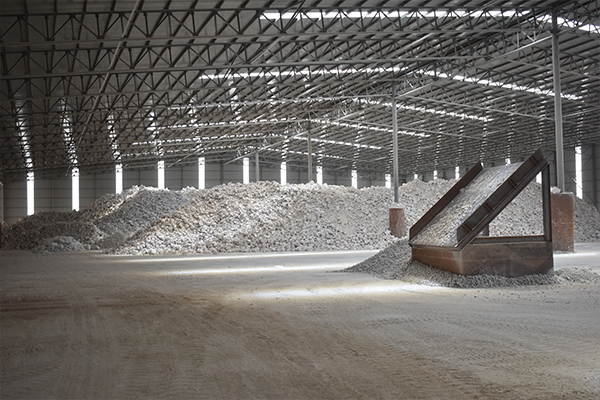
- Home
- >
- Factory Show
- >
- Warehousing
- >
Warehousing
Introduction:
Warehousing plays a crucial role in the magnesium products industry, ensuring efficient inventory management, product quality control, and timely order fulfillment. This article aims to highlight the importance of warehousing in this industry, emphasizing its impact on streamlining operations,
meeting customer demands, and achieving overall business success.
1. Inventory Management:
Effective warehousing practices are essential for managing inventory in the magnesium products industry. Warehouses serve as storage facilities for raw materials, work-in-progress, and finished goods. By implementing proper inventory control systems, including accurate tracking, categorization,
and replenishment strategies, companies can optimize stock levels, minimize excess inventory, and prevent stockouts. This leads to improved cash flow, reduced holding costs, and better overall supply chain management.
2. Quality Control:
Warehousing plays a pivotal role in maintaining the quality of magnesium products. Temperature and humidity control within warehouses ensure that stored materials are protected from environmental factors that may compromise their integrity. Additionally, warehouses provide inspection and testing areas where quality control measures can be implemented. Regular checks and adherence to quality standardshelp identify and rectify any issues, ensuring that only high-quality magnesium products are delivered to customers.
3. Timely Order Fulfillment:
Efficient warehousing operations contribute to fulfilling customer orders promptly. By strategically locating warehouses near target markets, companies can reduce lead times and transportation costs. Furthermore, well-organized warehouses enable the smooth movement of goods, facilitating quick order picking, packing, and shipping. Timely order fulfillment enhances customer satisfaction, builds loyalty, and establishes a competitive edge in the magnesium products industry.
4. Risk Mitigation:
Warehousing also plays a critical role in mitigating risks associated with the magnesium products industry.The storage of materials and finished goods in secure warehouses protects them from theft, damage, or natural disasters. Insurance coverage for warehoused inventory further safeguards against potential losses. Moreover, warehouses act as buffer stock, allowing companies to respond to unexpected market fluctuations, supply chain disruptions, or production delays, minimizing any negative impacts on customer satisfaction and revenue.
Conclusion:
Warehousing serves as the backbone of the magnesium products industry, ensuring efficient inventorymanagement, quality control, timely order fulfillment, and risk mitigation. By investing in modern warehousing infrastructure, implementing robust inventory management systems, and prioritizing quality control measures, companies in this industry can optimize operations, meet customer demands, and achieve sustainable growth. Recognizing the significance of warehousing is pivotal for companies aiming to thrive in the competitive magnesium products market.

